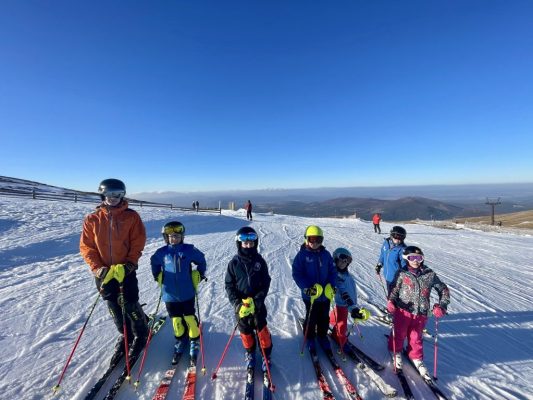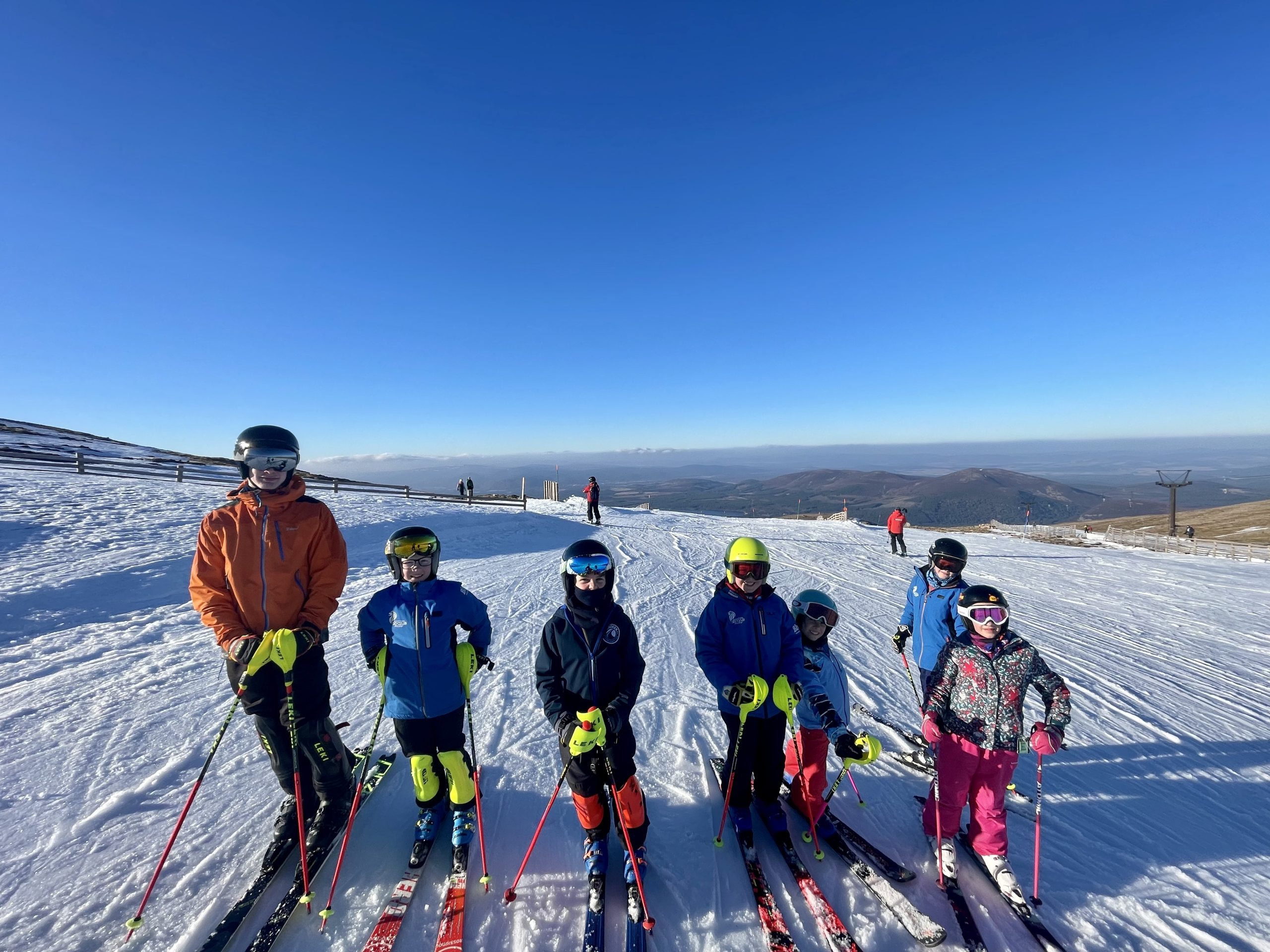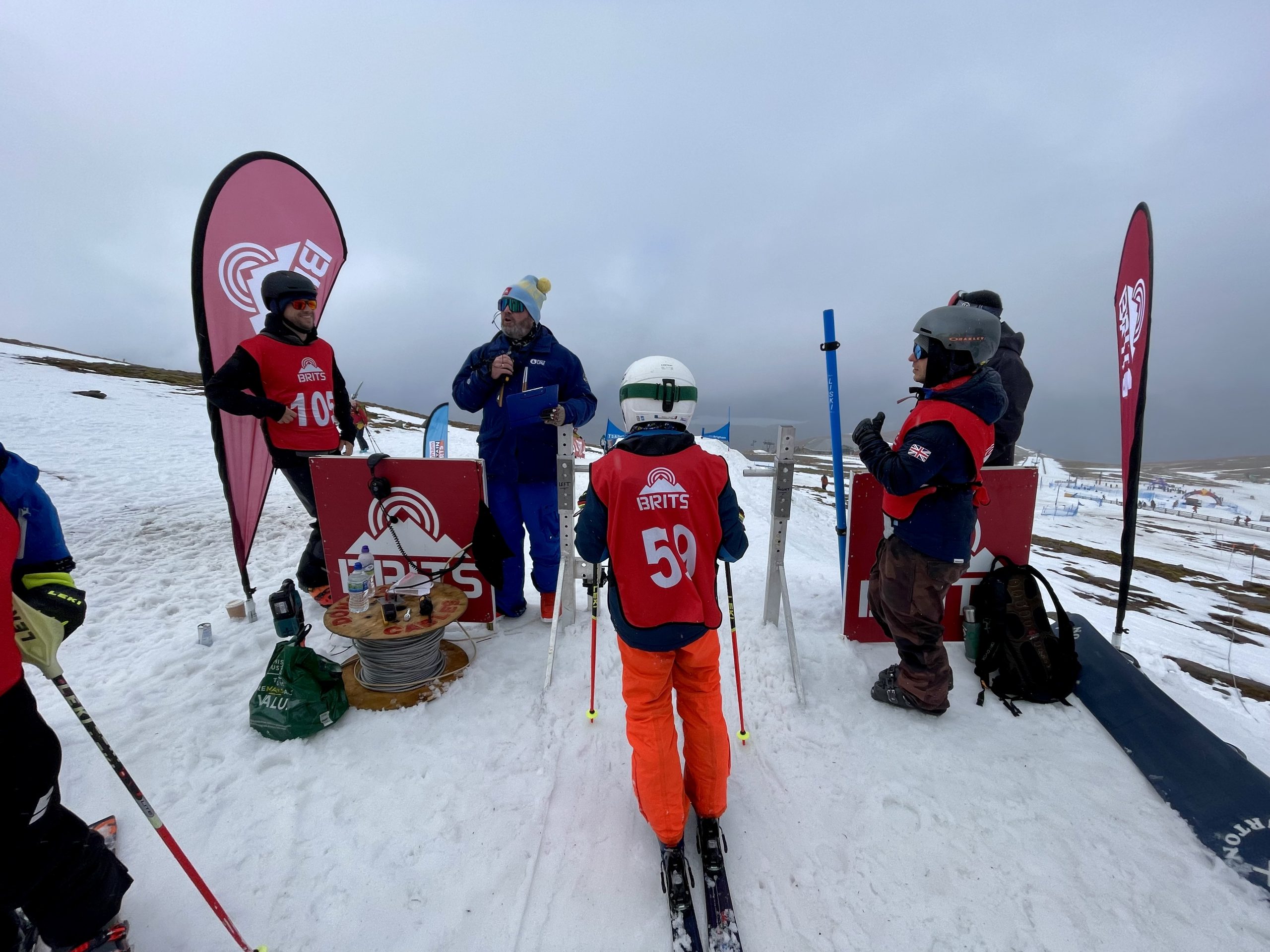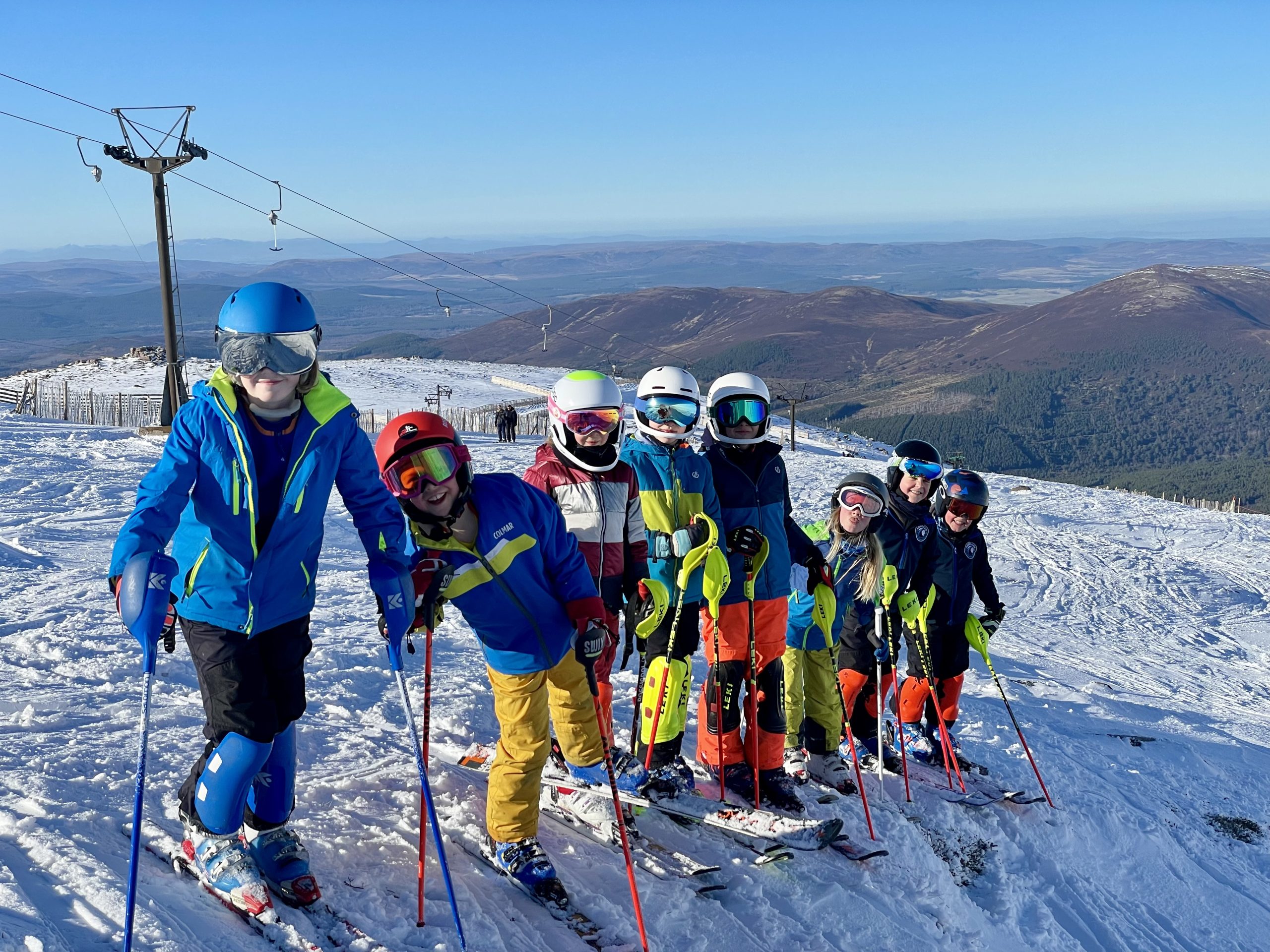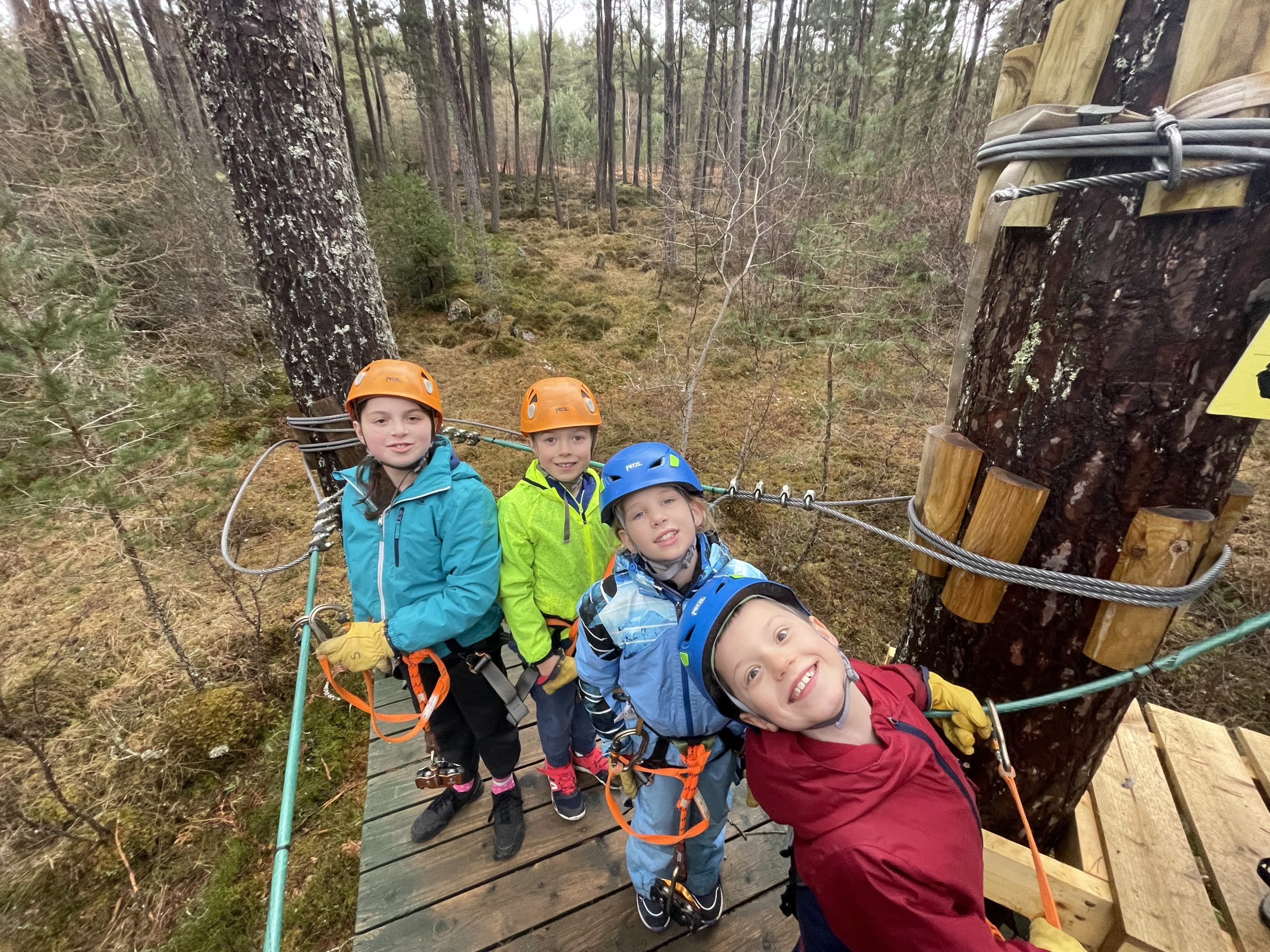SSC Racing Codes of Conduct
Last updated: 18th April 2024
Participation in sport, especially one they love, is an important part of each child’s educational development. As well as acquiring a sound knowledge of the sport through focus & dedication, they also gain invaluable personal benefits, develop self-respect and self-discipline.
Ski race training, and in particular, ski camps, are a unique opportunity to develop new and long-lasting friendships, and a spirit of generosity and respect towards others. With this in mind, the Scottish Ski Club expects all of its athletes to uphold certain behavioural standards, laid out in this Code of Conduct, in order to get the most out of their training. We also expect all parents/guardians to uphold this Code of Conduct, too, so that they can engage with training in a positive way, and to enhance their child(ren)’s involvement.
Trainee Code of Conduct
This Code applies to all participants engaging in any Scottish Ski Club training, whether in the UK or abroad. When training at Cairngorm, trainees are representing the Club in and amongst CMSL staff, other clubs, and members of the public, and must abide by the Athlete Code of Conduct set out here. On camps abroad, they are also representing Scotland and the UK in a foreign country.
Once committed to a training session or ski camp, you should make the most of it and give it your best. Get to know other trainees, especially the new and younger ones. They need you to be friendly, welcoming and supportive – remember what it was like when you started out. Your coaches are professionals, they have a lot to teach you – take advantage of their knowledge and show them your respect and appreciation.
- Respect everyone involved in and around your training: fellow trainees, adult members, volunteers and officials, coaches, house parents, mountain staff, hotel & restaurant staff, and treat all of those people courteously. Be kind. Respect means, amongst other things, being on time for all activities.
- Behave sensibly at all times, especially in public areas, for example mountain restaurants, lift queues, etc. Trainees are expected to be good citizens in public. Poor behaviour by a few often reflects badly on the Club as a whole. Be sensitive to local codes and customs when abroad. Be kind. Be respectful to those hosting us.
- Always wear your helmet and any other protective gear necessary. Back protectors are highly recommended.
- Trainees must know, understand, and follow The Skier’s Code. The International Ski Federation (FIS) has established rules for the conduct of skiers and snowboarders. See https://www.skiclub.co.uk/discover-snowsports/staying-safe/on-piste-safety/.
- The Head Coach will determine the training groups. Their decisions are to be respected and are based on athletes’ age, training history and experience, projected attendance, maturity, skills, etc.
- Look after your skiing equipment. Make sure your equipment is well maintained. Put your name on everything. Only you are responsible for not losing it!
- Always act in a sportsperson-like manner. Wish all competitors the best of luck and congratulate all performances. Good wishes boost everyone’s spirits. It is only natural that you will be disappointed if you fall or crash during a race or on a training run. Throwing equipment or using bad language is not acceptable and will result in disciplinary action. Thank the race officials and helpers for volunteering for race day. Without them, there would be no races.
- Involvement with, possession, use or distribution of alcohol is prohibited. Involvement or taking of drugs/performance enhancing drugs is considered illegal by all national sporting bodies and will be treated as a basis for expulsion.
- Athletes will not engage in sexual relationships, nor access inappropriate materials online or otherwise, whilst involved with Club training.
- On camps, it is each trainee’s responsibility to keep their room and any shared spaces clean and tidy. Athletes will not enter the room of athletes of the opposite gender. Camp staff will set a curfew, reflecting the age and needs of each trainee and their programme, and in most cases will require phones and other devices to be handed in. Athletes will respect the decisions of staff and will respect the other athletes’ right to rest.
Parent Code of Conduct
We understand that, as parents of trainees, you may want to spectate or even be involved with your child’s training. We want to encourage your involvement in a manner which is not detrimental to any trainee or member of staff. The Parent Code of Conduct is binding for parents/carers/legal guardians of any children training with SSC.
Parents are often the most supportive and encouraging person in a child’s sporting life, but can also add an element of pressure. Positive parental support is likely to lead to children having greater enjoyment, developing quality relationships in sport, and reaching their full potential. However, less than optimal parental support can negatively influence a child’s involvement and outcomes.
- Ensure that any child or athlete in your care is made aware of and understands the Trainee Code of Conduct above.
- Respect and encourage all trainees, not just those in your direct care.
- Respect the coach’s professional input and the process they are going through with your athlete. They are all fully qualified to look after and develop your child in the context of Snowsports and related activities. Those activities and the coaching process you have placed them in will have significant positive benefits in all aspects of their lives. Do not interfere in the coaching process.
- Ensure that SSC staff are made aware of any important information (new or ongoing) about the wellbeing of your child that may affect their ability to participate in the planned activities, for example a new or emerging health condition.
- Should you have any concerns about any child involved in SSC training, please make a member of SSC staff aware of the issue as soon as possible. It is always easier to manage the situation the earlier it is raised, and often very difficult to deal with after the event.
- If you have concerns about a member of SSC staff, raise this with the Head Coach, a Committee member, the club Child Welfare Protection Officer (CWPO – contact details on club website) or any other supervising adult as soon as possible.
- Please remember that, aside from coaches, the majority of the adults involved with any training or event are volunteers, and they will be able to distinguish help from interference! We will almost always accept offers of help!
Disciplinary Action
Disciplinary matters will be dealt with by the Head Coach and another member of SSC staff, usually the house parent on camps. Any breaches of the Code of Conduct will be discussed, with a parent/guardian involved for trainees younger than 18. Disciplinary action could involve:
- Sitting out from training temporarily, up to 1 day or permanently.
- Withdrawal from an upcoming race or races.
- Sending the athlete home immediately from abroad (expulsion from the camp at the parent’s expense).
Sending an athlete home is absolutely a final resort, and will be avoided wherever possible. If it is necessary, and an athlete has to be sent home, a parent/guardian will need to make themselves available to collect the athlete from an appropriate UK airport (as determined by the availability of flights and proximity of both the departure and arrival airports). If it is not possible for the athlete to travel home unaccompanied, then the athlete will need to be collected by a parent/guardian from the destination of the training camp.

